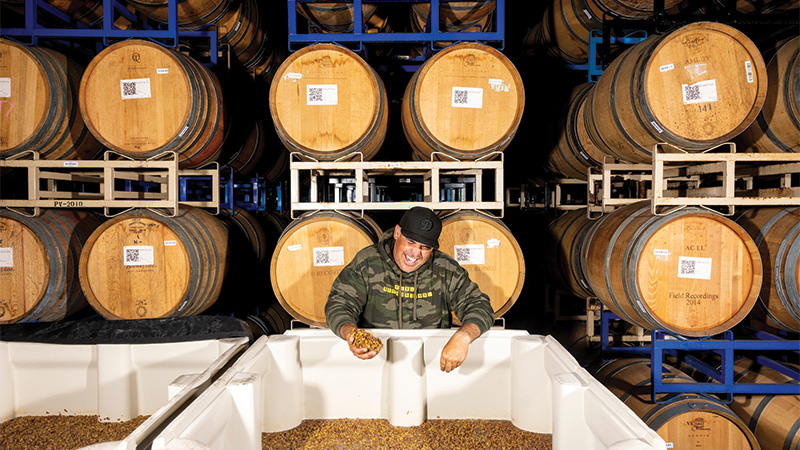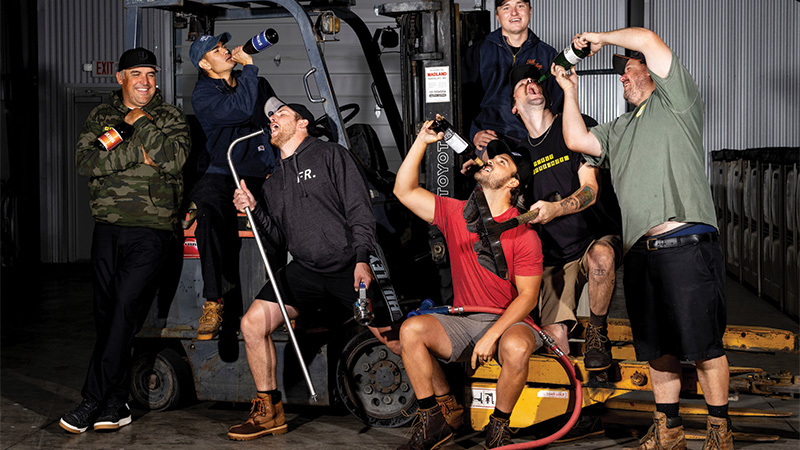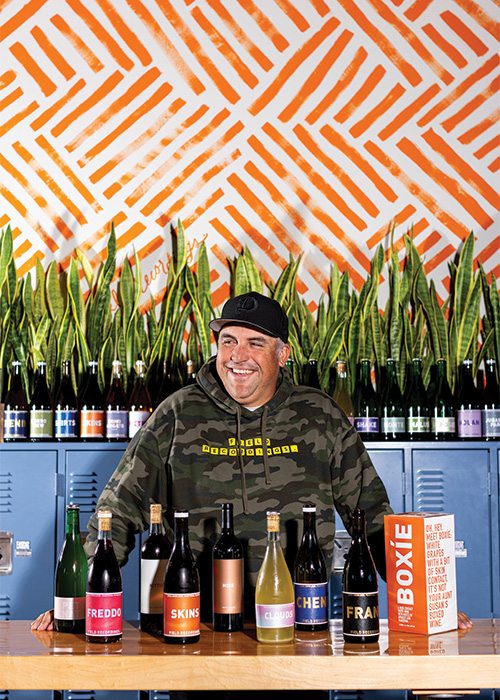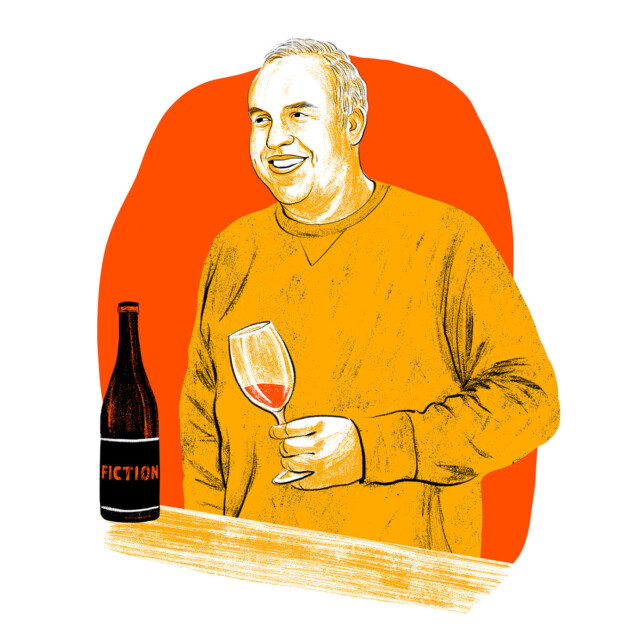This feature is part of our 2023 Next Wave Awards.
Enthusiasts are often drawn to wine for its ability to be much more than just a bottle of boozy liquid — a thoughtfully crafted wine can often represent a specific time, place, or person. That’s exactly what winemaker Andrew Jones strives to capture with Field Recordings, which he considers a personal catalog of the people and places he values most.
A small winery with an annual production of about 40,000 cases, Field Recordings crafts both single-variety wines and unique blends, with the goal of showcasing interesting and historical California vineyard sites.

But the path to the winery’s inaugural vintage wasn’t so obvious. Jones fell into wine when he was in college on a football scholarship. While he was focused on athletics, he randomly selected agricultural business as his major and started taking classes on vines and vineyard management. After school, Jones took a job at a grapevine nursery, and worked on vineyard development and care across California’s Central Coast. This experience exposed him to distinct vineyards as well as the interesting people behind each of them. Jones was taken with the diversity of growing sites and grapes that heavily contrasted the monotony of Cabs that dominated the market.
Based in Paso Robles, Calif., Field Recordings was started as a small side project in 2007, with the goal of sharing the magic of the vineyards and small growers Jones discovered while driving across California. “So much stuff in the wine world is just a copycat of something else,” he says. “I wanted to tell the stories of the unique people doing something different.”
Jones started with small batches of Chenin Blanc from the Jurassic Park Vineyard in Los Olivos planted in the late ‘70s and Petite Sirah from a vineyard planted in the ‘50s in Paso Robles — both up-and-coming regions at the time. Each year he grew the production of Field Recordings, buying more grapes from vineyards that inspired him, as well as crafting blends that represented certain regions. “I wanted to make a snapshot of Paso Robles every year,” Jones says of his approach to his first blends.

Eventually, he started planting new vineyards. “I started traveling to market wines across the country. This really expanded my palate and I found really cool esoteric types of wines,” Jones says. He has planted grapes like Charbono, Xarel-lo, and Marsean across the Central Coast to create expressions that are unique to the area. Today, Field Recordings sources from over 120 acres of estate-owned or rented vineyards across the Central Coast.
At its core, Field Recordings is agriculturally driven. Coming from the farming side of the business, Jones has always been a strong proponent of organic agriculture, and believes that great wine is made in the vineyard, as opposed to being manufactured in a cellar. And he approaches winemaking and vineyard management with the future in mind, working to create a sustainable system.
Field Recordings has also been a leader in the boxed wine movement, with the label’s skin-contact “Boxie” debuting in 2020. Jones is hopeful for the future of boxed wines, and after the success of Boxie, Field Recordings plans to expand its boxed wine offerings in the coming years and also start making canned wines.
Beyond avoiding the carbon-footprint implications of glass bottles, Jones likes the approachability of boxes and other formats. “I want wine to win in general,” he says. “There are so many things out there that people can buy, let’s do whatever we can for people to choose wine when they have their daily pop.”
That attitude has been a major factor in the success of Field Recordings. The eye-catching yet simple labels provide consumers with the information they need without being overwhelming. “In the end there is a lot of nuance to wine, but there doesn’t need to be a mystique to it,” Jones says. “I want to make it easy for the customers so they know what they are buying.”

If people want to take a deep dive and learn every small detail about the wine, that information is there for them. But if a consumer just wants to know they are getting an enjoyable wine, that works, too. This approach has led to the growth of Field Recordings’ wildly popular flagship wines: the Skins orange wine, Fiction red blend, Salad Days pét-nat, and the pét-nat rosé, which account for 75 percent of its production. Skins, which debuted in 2017, is by far their most popular wine, with the production growing 20 times its original size over the past six years. These widely available bottles strike the perfect balance between being easy-going and well-balanced, high-quality wines; hence their mass appeal.
And the same goes for Field Recordings’ entire range. The wines are accessible and exceedingly enjoyable, even in their youth, unlike many bold, high-tannin wines coming out of Paso Robles. It’s part of the philosophy that guides Jones and what he does: “That’s our job — to make wine easy to drink for you.”
